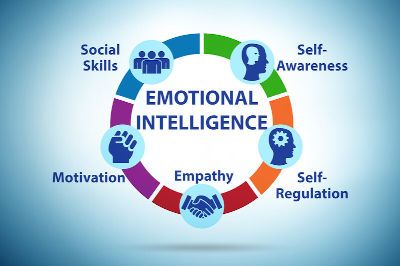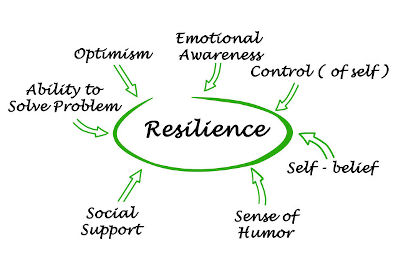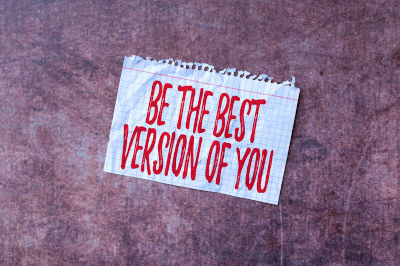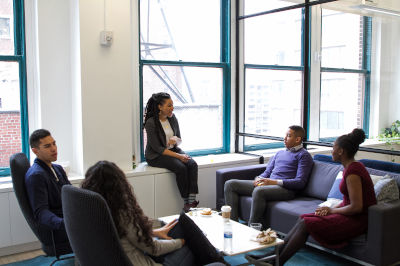SPEAKING
Keynotes/Conferences/Workshops
Energetic, Engaging, Motivating
Dr. Christine Allen is a workplace psychologist who regularly speaks throughout the country. She has years of experience working with organizations of all sizes, executives, and leadership teams to improve performance, sharpen skills, and improve communication and collaboration at all levels.
Make the Most of Your “People Asset” for the Success of Your Organization!
Investing in what are sometimes called “soft skills” or “people skills” are not always seen as being as important as the “hard” skills of the job. The reality is, the “hard skills” are easy to measure and can even be easier to master, assuming the person is in the right field!
“People skills”, on the other hand, are difficult to measure. Many of us have never learned the fine points that facilitate communication, understanding, cooperation — and ultimately, successful collaboration and team work!
Excellence in both “hard skills” and “soft skills” are essential for high performing teams and successful organizations.
Take steps toward improving your workplace today!
Workplace psychologist Chris Allen and the Insights Business Works professional coaches provide the practical knowledge, skills, and action steps required to make real change. In your people. In you!
We provide customized presentations and workshops to help you and your employees bring your best to work each day.
Whatever you need — keynote, workshop, webinar, seminar, lunch-and-learn, or retreat — we can provide it.
Review some of the topics we can present below. Full or partial day sessions are available. Arrangements can be made for onsite or online engagements.
Connects authentically with her online audience

Dr. Allen delivers content in the virtual group setting with a high level of professionalism and sensitivity. She connects quickly and authentically with her online audience, which helps her to provide truly lasting value. A pleasure to work with!
Speaking Engagement Topics
Dr. Allen can expand any of these presentations into 90 minute, half day or full day workshops.
Not seeing what you need? Contact us to arrange a custom session.
Presentation Listing
- You Can’t Pour From An Empty Cup: Strategies for Cultivating Work-Life Harmony
- Mindful Leadership: A Path to Leadership Excellence
- Emotional Intelligence: Understanding Ourselves and Others is a Key Competency for Leadership
- Becoming a More Resilient Leader
- How to Develop as a Servant Leader
- Recruitment and Retention Strategies: Post Pandemic and Beyond
- Collaboration Skills Are Critical for Tomorrow’s Leaders
- Creating Ethical Corporate Cultures: A Critical Opportunity in Enterprise Risk Management
- Critical Issues in Selection and Hiring: Finding and Keeping Top Talent
- Team Building and All-Staff Development sessions
- Leadership from the Inside Out: How to Become the Best Version of Yourself as a Leader
- Understanding Ourselves and Others: Practical Skills for Improving Communication and Managing Conflict using the MBTI, the PeopleMap, the DiSC, and/or the FIRO-B
- Leading from Everywhere: Increasing Presence, Confidence, and Influence as a Path to Leadership

You Can’t Pour From An Empty Cup: Strategies for Cultivating Work-Life Harmony
Overview
This popular keynote is ideal for leaders and teams that need to step back and make sure their priorities are in order. We can't be effective at work or home if we are running on fumes.

Mindful Leadership: A Path to Leadership Excellence
Overview
Mindful leaders have greater executive presence, connect well with others, and are responsive rather than reactive. Mindful leaders can also focus and sustain attention yet are flexible and able to change course when needed. They are also better able to lead others through change and to deal with the ambiguous, complex, and 24/7 demands upon them.
While cultivating mindfulness is a skill developed over time that takes motivation, knowledge and practice, this introductory workshop will help leaders begin the process, educating them about what mindfulness really is and why it is not a “fluffy” skill but rather an essential capability for leadership effectiveness.
Leaders will also have opportunities to reflect and practice during the session, as well as to begin to map out their personal plan for cultivating mindfulness as a leadership practice.
Program Objectives
Participants in the workshop will learn:
- How to define mindfulness
- Why mindfulness is key to leadership excellence and executive presence
- Where their biggest energy-drainers and distractions come from and how mindfulness can reduce these
- The components of mindfulness (sustained focus, present moment awareness, non-judging of experience) and how to cultivate these skills
- How mindfulness and meditation change the brain and why this matters
- Why training the mind is as important as is training the body
- How mindfulness improves performance especially under pressure
- How to design a realistic plan to become a more mindful leader
Participants will learn via some lecture, solo reflection, dialogue and group discussion, as well as some practice activities. They will create an outline of a personal plan for becoming a more mindful leader.

Emotional Intelligence: Understanding Ourselves and Others is a Key Competency for Leadership
Overview
The better we understand ourselves and others, the happier and more effective we are in our relationships, both at work and at home.
In this workshop, participants develop practical skills and behaviors related to self-awareness, self-management, social awareness, and relationship management (key aspects of emotional intelligence). These skills and behaviors include:
- the capacity to identify and regulate emotions
- to understand strengths and weaknesses
- to recognize and understand others' emotions as well as their strengths and weaknesses
- to look for win-win opportunities in relationships with others.
This workshop will help participants identify strategies for communicating effectively and for handling conflict, which is a normal, stressful part of relationships.
Program Objectives
Participants in the workshop will learn:
- About the role that emotional intelligence plays In interpersonal effectiveness and how to begin to develop this key competency.
- Strategies for increasing self-awareness and for harnessing and effectively managing thoughts and feelings (effective self-management and emotional expression).
- Why empathy matters and how to increase awareness of others' thoughts, feelings, and needs.
- Effective ways to achieve win-win solutions with others including strategies for
communicating our needs. - Healthy ways to manage conflict, including how to:
- move to deeper levels of conversations
- increase trust
- listen without judgment
- ask discovery questions
- reinforce shared meaning and success
- protect the quality of the relationship when in conflict
- set an intention when addressing conflict
- use active listening language
- manage our tendencies to get defensive
- remember that conflict is normal and actually positive
- how to keep conflict from being too personal

Becoming a More Resilient Leader
Overview
Resilience is an essential competency for leaders today, one that enables leaders to be more effective in all they strive to accomplish.
This highly interactive workshop draws on the scientific research on well-being and resilience to help leaders develop their own personal toolbox for resilience.
Participants will have opportunities for self-reflection, for exploration and discussion in pairs and in small groups, and to participate in large group discussions at their own comfort level.
Resilience is like a physical muscle that must be actively developed through gaining knowledge and understanding, creating intention and plans, and then deliberately practiced. Participants will leave with personal resilience plan that they can implement

How to Develop as a Servant Leader
Overview
"The servant-leader is a servant first. It begins with the natural feeling that one wants to serve, to serve first.”
– Robert K. Greenleaf
Servant leaders are focused first on the needs of others, both their customers and employees, rather than on their own ideas, goals, and ambitions.
What does it mean in a practical way to become a “servant leader” and how does the role modeling of servant leadership affect the organizational culture overall?
This session will help emerging leaders develop important attitudes, skills, and behaviors of servant leaders. Imagine what could happen in your organization if all of your team members became servant leaders.
Program Objectives
In this session, we will explore how to:
- Model the way by letting others see you serve and inviting others to join you; no task should be beneath you.
- Find meaningful ways to show employees and team member that you truly care about them; we will discuss the importance of an investment of time with your team members and employees.
- Find out what your team members and employees need from you.
- Create a less hierarchical and flatter department or unit.
- Develop greater self-awareness; servant leaders go first in asking for and receiving feedback from team members.
- Become a truly better listener; enhance your capacity for empathy; listen not only to customers and employees, but to your vendors, suppliers and other business partners.

Recruitment and Retention Strategies: Post Pandemic and Beyond
Overview
It’s a new world these days for every employer. The pandemic of 2020 lingers into 2022 and beyond. The landscape of talent willing to work a traditional job has shrunk to record low numbers.
What is an employer to do?
This session describes the current challenges facing employers given "the Great Resignation" and the continued preferences for remote and hybrid work.
Dr. Allen will outline the strategies organizations can implement now to make a difference well into the future.
Ideal for management and executive professionals seeking to restructure recruitment and retention programs for continued success.

Collaboration Skills Are Critical for Tomorrow’s Leaders
Overview
Tomorrow’s leaders will increasingly need to get things done through and with others.
Innovation requires collaboration across industries, demographic differences, languages, time zones and more.
For successful collaboration leading to new solutions and innovation, leaders need to improve skills that reduce defensiveness and enhance true communication.
Program Objectives
This session will explain important skills for collaboration and working through teams, including virtual and hybrid teams.
Participants will learn to:
- Maintain a collaborative and positive intention (remaining open and non-defensive).
- Commit to developing deeper levels of self-awareness.
- Maintain self-accountability and take ownership for one’s thoughts, feelings, and behaviors— even the unintended consequences.
- Listen and understand others—who they are, what they believe, how they are thinking and feeling, and why.
- Grow knowledge of and commitment to problem-solving strategies that enhance collaboration rather than reinforce unconscious competition, such as looking for common ground, helping to other’s concerns, consensus-building behaviors, and expansive approaches that are less transactional.

Creating Ethical Corporate Cultures: A Critical Opportunity in Enterprise Risk Management
Overview
With all the risks out there, from economic volatility to data breaches, some leaders overlook the role that developing an ethical culture plays in reducing risk and improving the bottom line. Focusing on creating an ethical organizational culture in an intentional way is now an established solution to reducing risk.
Program Objectives
- Help all leaders work to mitigate their natural human biases
- Intentionally role model and reinforce desired behaviors
- Identify strategies to create a culture of integrity versus compliance; discover strategies to reduce narcissistic and selfish behaviors at all levels
- Hire, onboard and encourage participation to help to ensure employees will do the right thing
- Create an environment of psychological safety - the key to innovation, collaboration and fraud reduction
- Become a deliberately developmental organization

Critical Issues in Selection and Hiring: Finding and Keeping Top Talent
Overview
Hiring, selection, and retention of great employees is critical to the success of all organizations. Dr. Chris Allen will share information and lead an interactive session to discuss important strategies for selecting, hiring, and retaining employees with the right stuff for your organization.
Program Objectives
Topics include:
- Why you should assess for personality traits in addition to competencies and what to look for
- Personalities to avoid hiring and strategies for doing so
- Hiring practices to avoid
- When and how to use formal assessment
- Why emotional intelligence matters and how to look for it
- How to use a healthy workplace culture to attract employees, especially the rising generation
- The role of ethical and collaborative culture in hiring and retention

Team Building and All-Staff Development sessions

Leadership from the Inside Out: How to Become the Best Version of Yourself as a Leader

Understanding Ourselves and Others: Practical Skills for Improving Communication and Managing Conflict using the MBTI, the PeopleMap, the DiSC, and/or the FIRO-B

Leading from Everywhere: Increasing Presence, Confidence, and Influence as a Path to Leadership
Additional Topics
Dr. Allen can present on a wide range of topics to meet the unique needs of your business or team.
Personalities in the Workplace
Communication
Resilience
Not seeing what you need? Contact us to arrange a custom session.
